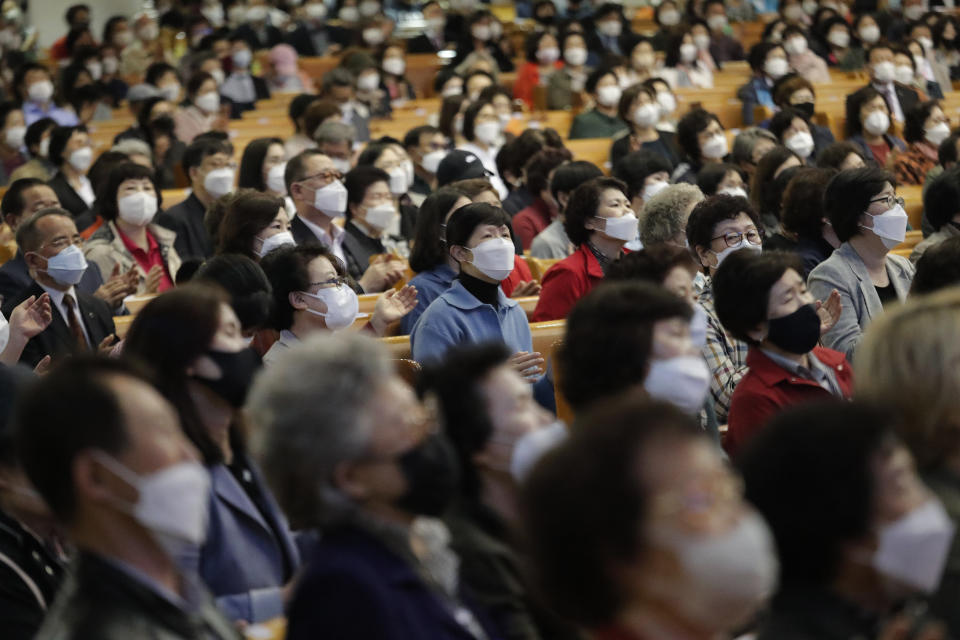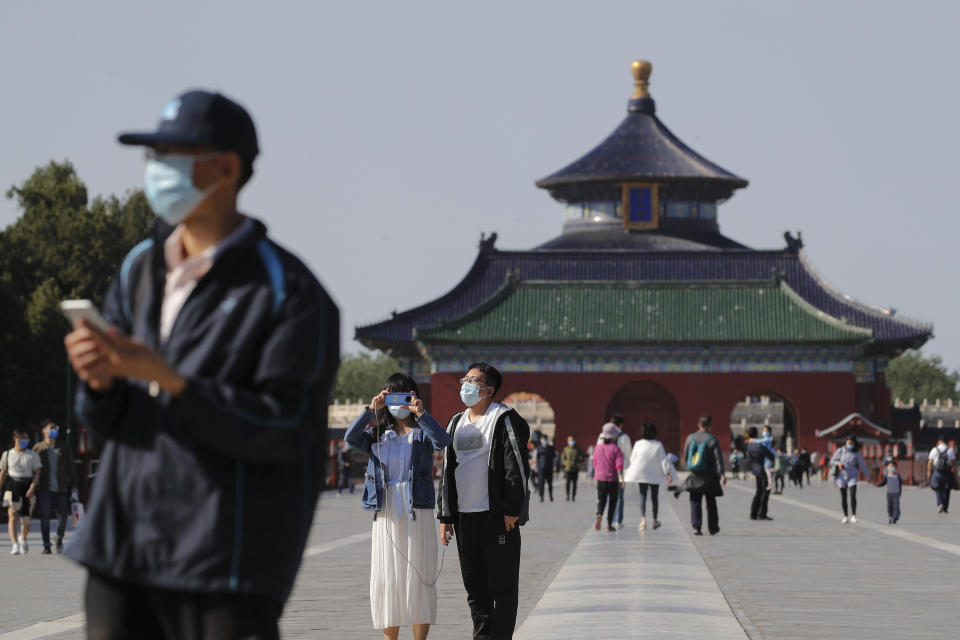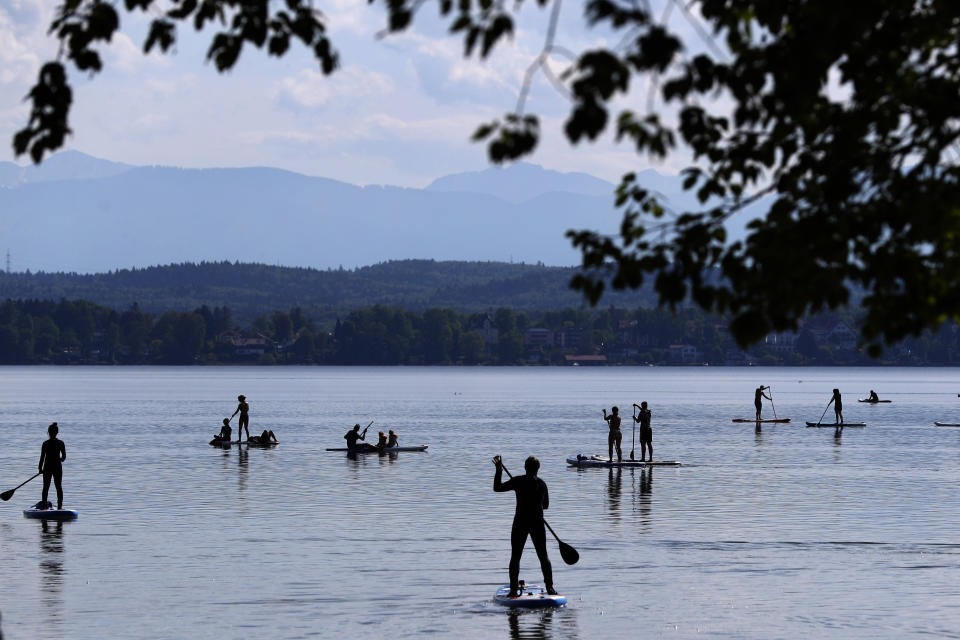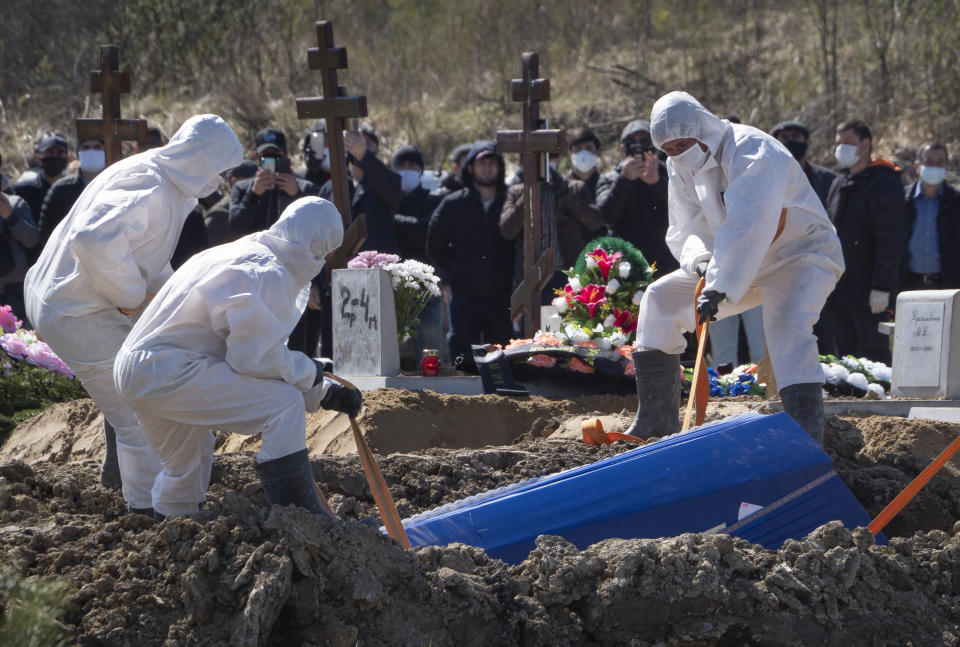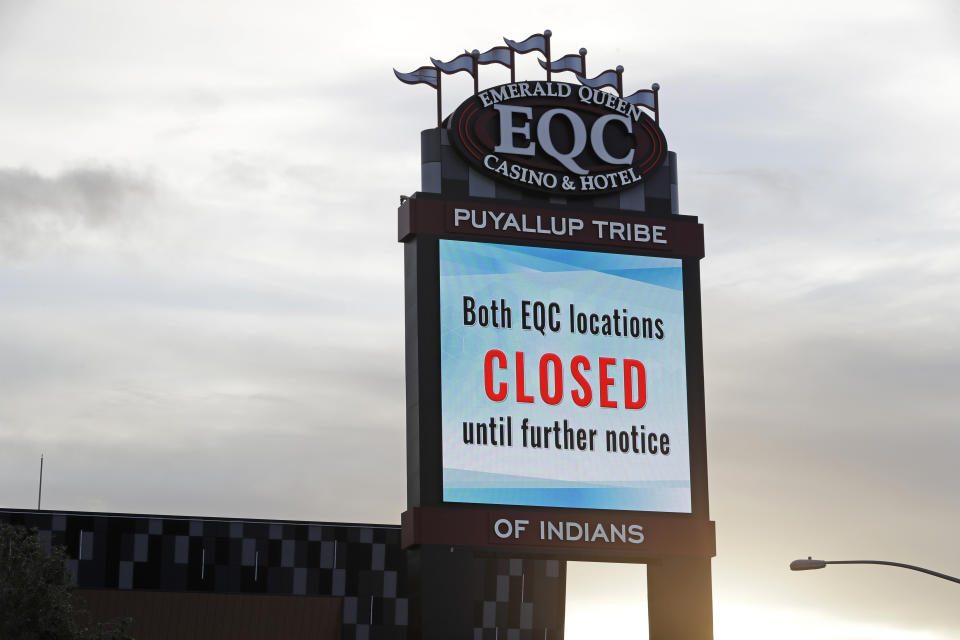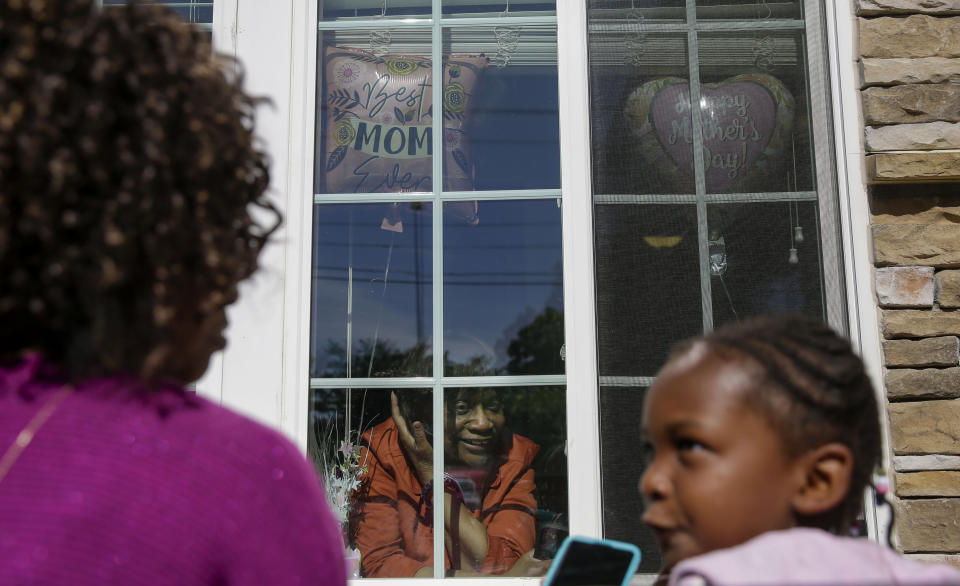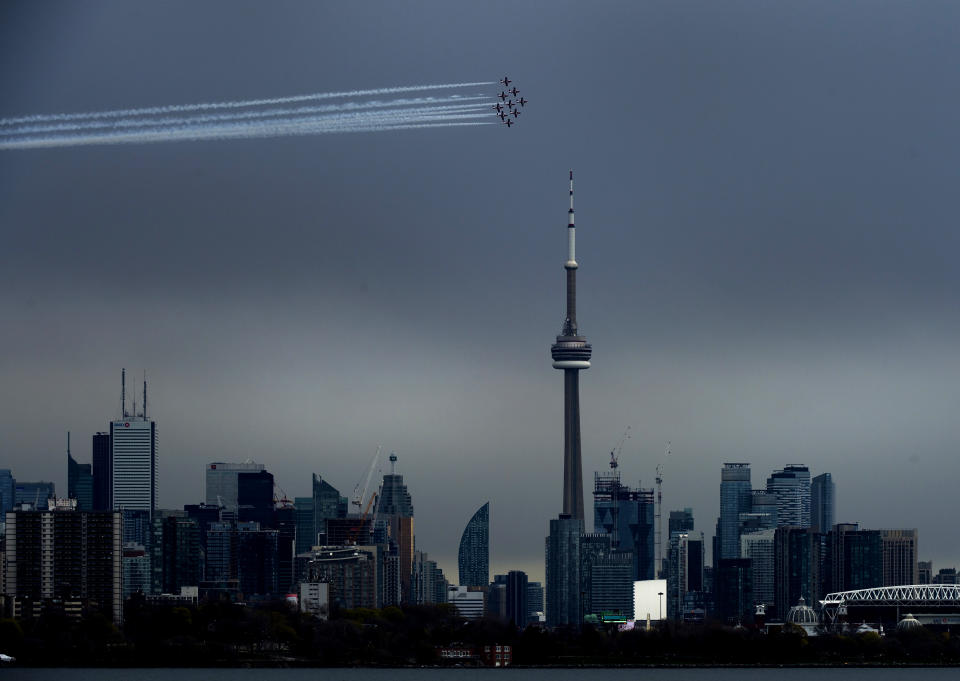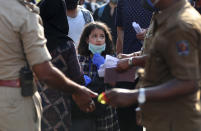What you need to know today about the virus outbreak
Nations struggled to balance public and economic health Sunday, feeling pressure to reopen shuttered businesses and aspects of life amid worries that relaxing restrictions too much could ignite a second wave of coronavirus infections.
South Korea, China and Germany, all seen as nations with success in clamping down on COVID-19, have seen small upticks. Yet Germany, like much of Europe, is continuing to loosen restrictions. Britain, which has the continent's most deaths from the virus and a prime minister who came close to dying from it himself, announced a modest easing of its lockdown.
In Washington, where three members of the Trump administration's coronavirus task force are in self-quarantine, some of the president's top economic advisers emphasized the importance of getting more businesses and offices opened.
Here are some of AP’s top stories Sunday on the coronavirus pandemic. Follow APNews.com/VirusOutbreak for updates through the day and APNews.com/UnderstandingtheOutbreak for stories explaining some of its complexities.
WHAT’S HAPPENING TODAY:
— Vice President Mike Pence was self-isolating after an aide tested positive for the coronavirus last week, but he planned to return to the White House on Monday.
— As President Donald Trump turns to governors to handle much of the next phase of coronavirus response, some members of both parties in Congress are pushing their own proposals.
— The Senate's top Democrat says the Department of Veterans Affairs needs to give Congress more information on veterans treated with a drug promoted by Trump that has not been proven to be safe and effective for the virus.
— The virus and the response to it is making the difference between European and American social safety nets ever more stark.
— Dozens of U.S. virus patients and some businesses are suing China over the spread of the coronavirus. The cases face an uphill climb.
— French schools will be welcoming some students back starting Monday, but many parents aren't sure they want their children to go.
— A day after an AP report laying out the criticism New York Gov. Andrew Cuomo has received over the state's response to the virus in nursing homes, he announced major changes announced major changes in his approach, most notably ending a directive that forced nursing homes to take recovering COVID-19 patients.
— Saturday night's UFC 249 could serve as a blueprint for sports leagues around the country and the world as they start to resume during a global pandemic.
— The coronavirus has complicated a yearlong Arctic research mission aimed at improving the models used for forecasting climate change.
— The closure of hundreds of tribal casinos to slow the virus' spread cost some Native American communities their main source of income.
— How many people were staying at your home on April 1? That standard census question is flummoxing some whose lives have been upended by COVID-19.
— Venezuelans living abroad and sending money home to their troubled nation have been hit especially hard by the virus’ economic impact.
— Every business has been affected by the virus — even drug dealing.
— Among the winners: Albanian flamingos.
___
WHAT YOU NEED TO KNOW:
For most people, the coronavirus causes mild or moderate symptoms, such as fever and cough that clear up in two to three weeks. For some, especially older adults and people with existing health problems, it can cause more severe illness, including pneumonia and death. The vast majority of people recover.
Here are the symptoms of the virus compared with the common flu.
One of the best ways to prevent spread of the virus is washing your hands with soap and water. The U.S. Centers for Disease Control and Prevention recommends first washing with warm or cold water and then lathering soap for 20 seconds to get it on the backs of hands, between fingers and under fingernails before rinsing off.
You should wash your phone, too. Here’s how.
TRACKING THE VIRUS: Drill down and zoom in at the individual county level, and you can access numbers that will show you the situation where you are, and where loved ones or people you’re worried about live.
___
ONE NUMBER:
35: At least 35 people convicted in killings were granted parole by Virginia in March amid concerns over spreading the virus. Prosecutors and victims’ families say they weren’t notified as the law requires.
—
IN OTHER NEWS:
— INFORMATION OVERLOAD: Most Americans are following virus news closely, but most of them say they also need to unplug.
— BIG FAMILIES, BIG PROBLEMS: For the millions of Americans who live in multigenerational homes, where one of the main strategies for avoiding infection — following social distancing protocols — can be almost impossible.
— OPENING ACT: Devastated that her graduate recital was canceled, Brooke Mead went to the Philadelphia Orchestra seeking advice. The viola student got a lot more than that.
___
Follow AP coverage of the virus outbreak at https://apnews.com/VirusOutbreak and https://apnews.com/UnderstandingtheOutbreak.

